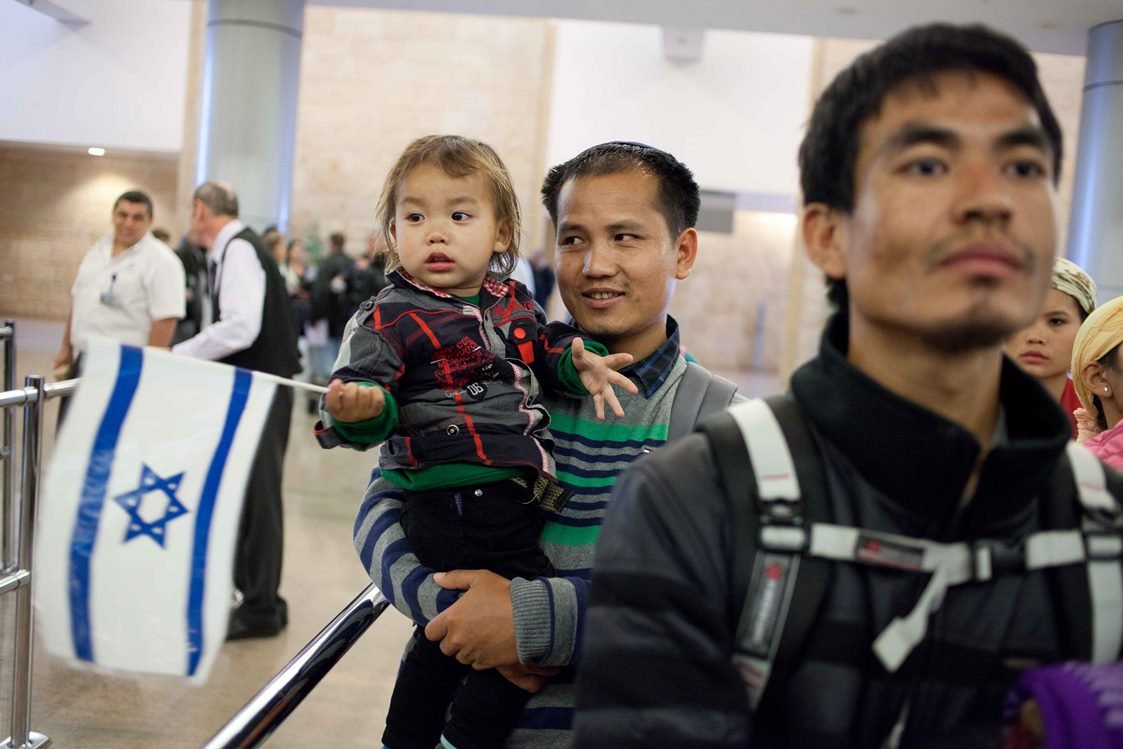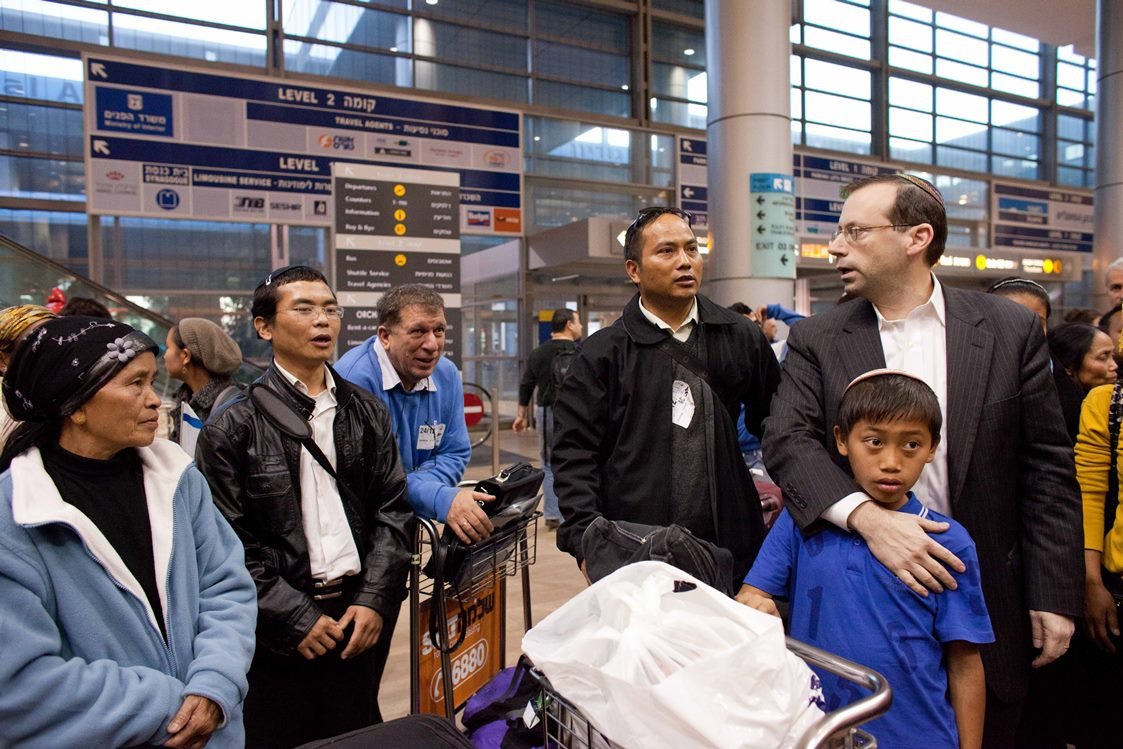
Youth Community

Aid Ukraine

Order Why Israel Resources

Support our ministry

Subscribe newsletter

Israel & Christians Today

Biblical understanding about Israel
Michael Freund: '7,000 Bnei Menashe still in India waiting to come to Israel'
Last June, Michael Freund (Founder and Chairman of Shavei Israel) travelled to Italy at the invitation of Christians for Israel Italy. It was the first time that an orthodox Jew has spoken in Italian Christian churches about the lost tribes of Israel, particularly Bnei Menashe (the tribe of Menashe). During his trip Chiara Canciani (Christians for Israel Italy) interviewed him and wrote an article for an Italian Christian newspaper.
How did you start working for Bnei Menashe and what did you feel the first time you met the Bnei Manashe in North-East India?
I moved to Israel from NY in 1995 and when Benjamin Netanyahu was elected Prime Minister in 1996 I went to work for him at the Prime Minister’s Office. One day a letter arrived in the Prime Minister’s Office from this Jewish community from the Bnei Menashe (Children of Manasse). They appealed to the Prime Minister to be allowed to come back to Zion after 2.700 years of exile. They have been writing to the Prime Minister since at least Golda Meir’s years, probably since David Ben Gurion’s, and they never received their responses.
That letter crossed my desk and I read it. The first thing I thought was that the idea that some tribes in the North-East India might be my cousins or brothers was completely crazy. It sounded too strange to believe. But when I travelled to India, met with the members of the community, learned about their history, customs and traditions I became convinced that they are descendants of a lost tribe of Israel. And despite being cut off from the rest of the people of Israel for so long, they had succeeded in preserving a strong sense of Jewish faith and identity.
What are the “signs of recognition” that lead you to say that they are Jews?
Up to 100 years ago, when the first Westerners arrived on that part of India, the Bnei Menashe were practising biblical Judaism: they kept the Shabbat, they kept kosher, they practised the sacrificial rites contained in the Bible, they kept the festivals. They had a strong sense of identity that they were the descendants of Menashe. They also held on to the belief that one day they would return to Zion, to the place from which their ancestors had been exiled. This was a primary component of their identity.
Several years ago, in 2005, the Israeli Chief Rabbi recognized the Bnei Menashe as descendants of Israel. Furthermore a DNA test that was done on members of community (conducted by the Central Indian Genetics Laboratory in Calcutta) and they found that Bnei Menashe have certain DNA markers that indicated a Middle-East origin. That was what you don’t expect to find in a tribe living on borders of India, Burma and Bangladesh.
How many Bnei Menashe already made aliyah and how many of them still have to?
My organization, Shavei Israel, has brought 2,000 Bnei Menashe on aliyah to Israel. The latest group to arrive was a group of 270 Bnei Menashe who came earlier this year, on January 2013, with the assistance and support of Christians for Israel as well as other Christians and Jews around the world. We recently received permission from the Israel Chief Rabbi to bring another 900 members of the community to Israel. There are in total 7,000 Bnei Menashe still in India waiting to come. Our goal is, over the next 5 to 7 years, to bring all the remaining members of the community back to Israel.
Are they able to become part of the Israeli society once they arrive to Israel?
We invest a great deal of energy and resources in absorbing the Bnei Menashe immigrants in Israel and assisting them to integrate into the larger society. Being immigrants is not an easy thing to do. It means adjusting to a new mentality, a new life style, a new language. So there are always challenges that every community faces when people immigrate. Nevertheless, their immigration and absorption has been incredibly successful. The Bnei Menashe have a high school education, most of them speak good English; they are familiar with internet and somehow with the western ways. So, when they come it is not as a big shock as it might be for certain other immigrants. We see, especially with the young generation of Bnei Menashe who are growing up in Israel, that they have higher education, get married with Israelis, and serve in the army. They are a key part of the Israeli society.
What do you think is the role that the Christians should play in Bnei Menashe’s aliyah?
First, I think that it is worth pointing out that the return of the lost tribe of Bnei Menashe is another tangible proof that God has not forgotten His people Israel and that the promises contained in the Bible are happening: they are coming to pass as we speak. Thousands of years ago the prophets of Israel predicted that the tribes of Israel one day they would come back. And that is actually happening. Think for a moment of the prophet Jeremiah who lived at the time of destruction of Jerusalem, almost 2600 years ago. The mockeries he must have been subjected to: he went around prophesying that the Jews and all of Israel will come back one day, even as the Babylonians were destroying the cities. His friends and neighbours must have thought these prophecies were crazy.
We are privileged to live in a generation where those prophecies are happening. This is something that should excite and encourage anyone who believes in the Bible – especially Christians! There are specific verses, such as Isaiah 49:22 which say that the nations of the world have a role to play in carrying the Jewish people back to our land. That means that the nations have a biblical mandate to facilitate and play an active role in helping Israel to go back home. You can carry us with your prayers, with your love, with your financial support. There are a range of ways that people can play a part in this unfolding miracle. And I think that it is very clear from the verses in the Bible that it is something that God expects from each and everyone.
 |



